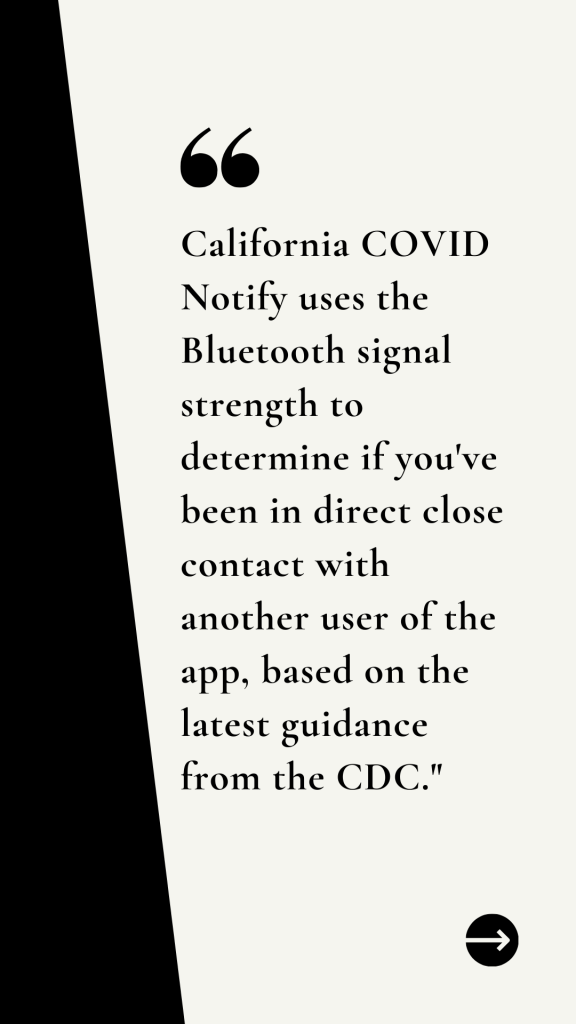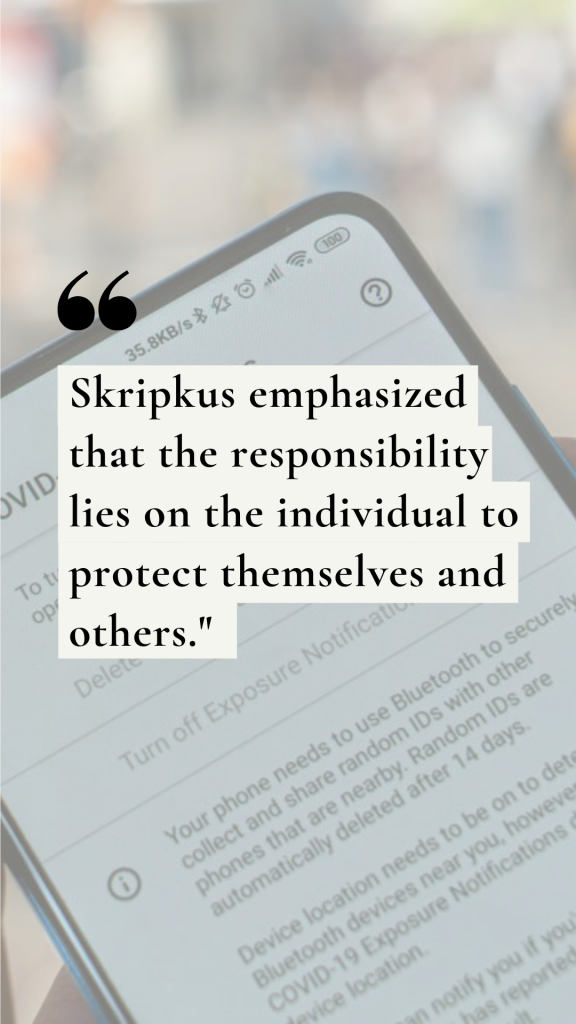Alexandra Wishowski
Isla Vista Beat Reporter
The University of California Santa Barbara (UCSB) recently announced a partnership with California COVID Notify, a voluntary smartphone-based COVID-19 notification system. The pilot program aims to reduce the spread of the virus by using technology to improve contact tracing.
According to a campus-wide email sent out by UCSB officials on Nov. 16, the main goal of the pilot program is to “quickly notify users if they’ve likely been exposed to COVID-19, allowing them to seek medical attention and reduce the risk of exposure for friends, family, and the broader campus community.”
After the clinical success of the pilot program at UC San Francisco and UC San Diego, UCSB joins UC Davis, UC Riverside, UC Los Angeles, and UC Berkeley in an effort to test the effectiveness of the notification system. The program is currently only available to these select campuses until the system is introduced statewide.
In an interview with The Bottom Line, Katie Mankins, director of Special Projects at UCSB, explained that California COVID Notify “uses the Bluetooth signal strength to determine if you’ve been in direct close contact with another user of the app, based on the latest guidance from the CDC.”

First, the system assigns a user’s phone a random identification number. Using the built-in emergency notification systems from Google and Apple, the system exchanges the random identification number with other users when phones are within six feet of each other for at least 15 minutes.
A notable feature is the ability to exchange identification numbers with strangers who have opted-in to California COVID Notify. An individual is able to quickly learn whether they have been exposed to the virus beyond their inner social circle, such as when they are in close proximity to others who are waiting in line at a store or traveling at the same time.
“Traditional contact tracing may not identify people you’ve come in contact with whom you don’t know personally since the interview questions are based on your recollection of where you were and who you were with,” Mankins stated.
Vejas Skripkus, executive medical director of UCSB Student Health (SHS) confirmed that the user makes the explicit decision to turn on exposure notifications.
“This app is completely voluntary and an individual can opt-in and out of the app as they please,” said Skripkus. “Privacy is preserved and the app does not share location information or collect, store, or transmit any personal information at any time.”

In order to protect user privacy and ensure confidentiality, the identification numbers change every 10-20 minutes.
Someone who receives a verified positive test result can then choose whether or not to share the information with the app. A key code issued by a test provider is entered into the application, which generates anonymous push notifications to potentially infected users on instructions to get tested themselves.
“Our COVID-19 response team here at Student Health Services is issuing keys,” added Skripkus.
Users of California COVID Notify, however, should not solely rely on the contact tracing technology to slow the spread. Skripkus emphasized that the responsibility lies on the individual to protect themselves and others.
“It is important to wash your hands often, avoid close contact, socially distance, cover your mouth and nose with a mask when around others, cover coughs and sneezes, and monitor your health daily,” Skripkus explained.
“I hope more UCSB-affiliated individuals sign up to use the app,” he continued. “It can really help in our efforts during this COVID-19 pandemic.”












Hi! I would like to work with you and to post a couple of great articles on your website. I think we might work something out and try to make a great collaboration. Let me know what you think.
Best Regards
Comments are closed.